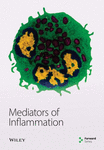Faster onset of action with topical levocabastine than with oral cetirizine
Abstract
This international multicentre, open-label, parallel-group trial was undertaken to compare the therapeutic efficacy and tolerability of topical levocabastine and oral cetirizine in patients with perennial allergic rhinoconjunctivitis, with particular reference to the comparative onset of action of the two drugs. A total of 207 patients were randomized to receive either levocabastine nasal spray (0.5 mg/ml, two sprays in each nostril twice daily) plus levocabastine eye drops as required (0.5 mg/ml, one drop in each eye twice daily p.r.n.) or cetirizine orally (10 mg once daily) with a treatment duration of 2 weeks. Onset of action was found to be significantly more rapid with levocabastine than with cetirizine for both nasal and ocular symptoms (p < 0.001). Within 15 min of study drug administration, 36% of levocabastine-treated patients reported relief from nasal symptoms and 32% relief from ocular symptoms compared with 10% and 17% of patients on cetirizine, respectively. At 1 h, the percentages of patients reporting relief were 76% and 38% for nasal symptoms, and 81% and 48% for ocular symptoms in the levocabastine and cetirizine treatment groups, respectively. At 8 h there were no differences between the two treatments. Overall therapeutic efficacy was found to be comparable in the two treatment groups over the 2-week study period with no significant intergroup differences in symptom severity or global therapeutic efficacy. Both drugs were well tolerated with no significant differences in the incidence or type of adverse reactions between the two groups. In conclusion, levocabastine eye drops and nasal spray are as effective and well tolerated as oral cetirizine for the treatment of perennial allergic rhinoconjunctivitis with the advantage of a significantly faster onset of action for both nasal and ocular symptoms.




